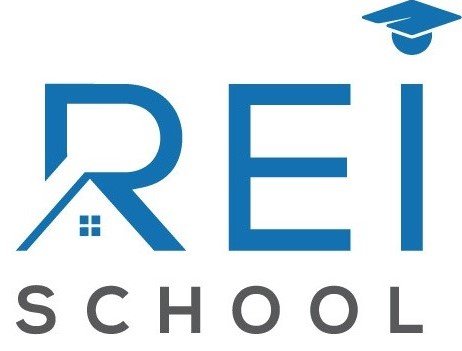September 8, 2025 | 3 Minute Read
After three years of running multiple short term rentals, I’ve learned a lot. This business isn’t as passive as many people make it out to be—but it can be extremely rewarding if you learn to adapt, systematize, and stay disciplined.

I’ve learned along the way of owning and managing short term rentals. Here are some of the biggest pros and cons.
If you are thinking about setting up your first STR, hope this helps. If you are already operating STR, you feel my pain.
Scaling Up, Then Down
Pros:
Scaling up to 16 houses in 18 months gave me exposure to different systems and guest types. I learned how a three bedroom/one bath house operates much differently from a four bedroom/two bath.
The more listings I had, the more experience I had with STR platforms, and the faster I learned what worked (and what didn’t). Optimizing the listings to obtain bookings and fill my calendar created the systems I needed to automate as much as possible.
Cons:
Growth without systems equals chaos. At one point, I was juggling too many moving parts—guest requests, cleaners, turnovers, constantly revising messaging, listings and documentation.
Scaling back down to eight houses was painful but necessary. Cutting low performing properties freed up time and capital to focus on the properties that worked, but it also meant swallowing pride and admitting mistakes.
Messaging & Documentation
Pros:
Clear, consistent messaging reduced guest issues before they happened. Automated text message templates and a comprehensive set of house rules based on guest feedback freed up a significant amount of time.
Documenting processes (from check-in instructions to house rules) created a smoother guest experience and fewer surprises. The absolute best idea I had was installing small signs on the back of the front door stating the 10am check out time. This almost eliminated completely late check outs which wrecked havoc with our cleaning scheduling when there were multiple same day cleanings.
Cons:
Guests don’t always read, no matter how detailed or clear your messaging is. I was not prepared for how messy some guests can be! Ugh.
Over-documenting can make your place feel less like a stay and more like a manual. I had to scale down find the right balance after a few guest complaints about information overload.
Housekeepers
Pros:
A reliable cleaner is the backbone of the short term rental business. When you find good ones, they’re worth their weight in gold.
Great housekeepers often double as “eyes on the ground,” spotting damage, missing items, or maintenance issues before they snowball.
Cons:
Turnover has been modest. I am on my fourth cleaning team in three years. But, they have been with me for the last year now.
Quality control can be inconsistent. What looks “clean enough” to one cleaner may not meet guest standards. Still guests sometimes try to use this as a reason to request a full refund where none was warranted.
Wellness Checks
Pros:
Inspections prior to guest arrival prevented bigger problems. Checking in on properties revealed leaks, maintenance issues, or even pest problems before they turned into guest complaints.
Wellness checks helped keep my properties up to standard, especially in slower seasons when fewer turnovers meant less oversight.
- Displaying the Wellness Check List with the housekeepers signatures kept us accountable. Guests often appreciate this level of transparency.
Cons:
Wellness checks cost me my time especially if I have to manage a last minute issue, or replace or resupply items. This increases exponentially especially if you have multiple properties and check ins on the same day (e.g. Friday).
- Some guests viewing the Wellness Check list occasionally dispute some of the items as not completed.
Dynamic Pricing
Pros:
Smart pricing tools maximized revenue. Charging $290 on a peak weekend instead of my base rate of $209 was a game-changer.
Dynamic pricing kept me competitive and filled more nights than static pricing would have.
Cons:
The software doesn’t always align with your goals. Sometimes it dropped rates so low that it attracted the wrong type of guest.
Constant tweaking was required. Set-and-forget never really worked. I revise and tweak base pricing every Monday.
Optimizing Listings
Pros:
Strong photos, catchy headlines, and accurate descriptions boosted both clicks and bookings.
Reviews improved when expectations were set clearly.
Cons:
Optimization isn’t one-and-done. Platforms keep changing algorithms, so staying ahead takes ongoing effort.
It’s easy to get lost in the weeds chasing small improvements (like rearranging photos) when bigger operational issues deserve more attention.
- Monthly or quarterly review of the listings and optimization takes time.
Direct Bookings
Pros:
Direct bookings meant no Airbnb or VRBO fees and more control over the guest relationship.
Repeat guests often preferred booking directly, creating loyalty and smoother communication.
- They stay longer and pay much higher rates especially with mid term bookings (e.g. workers and insurance companies relocating displaced homeowners).
Cons:
You lose the “Airbnb or VRBO safety net.” No platform to mediate disputes or cover damages.
- Off platform text messages, collecting deposits, and signing booking agreements takes human intervention and time. It’s a whole new system you need to set up.
Building trust for direct bookings takes branding, systems, and sometimes legal work (contracts, deposits). Not as plug-and-play as using a platform.
Final Takeaway
Running short term rentals for three years taught me that this is a hospitality business first and a real estate investment second.
The properties, pricing, and photos matter—but what really makes or breaks you are the systems, people, and processes behind the scenes.
Scaling too fast, neglecting staff, or skipping documentation can crush you, while smart pricing, strong communication, and a reliable team can make the business rewarding and sustainable.
Today, our systems are fine-tuned, processes perfected, and everything is streamlined.
Even with only half the properties we began with 18 months ago, we’re on pace to net over $100,000 this year.
Worth it? You betcha!
